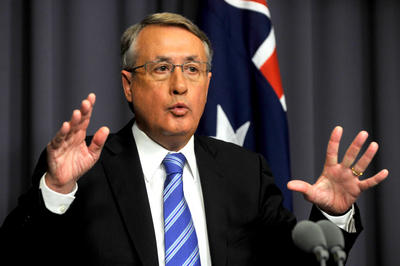Professor Ian Harper — Emeritus Professor at the University of Melbourne and Director at Access Economics — helped the ASX structure its proposal. He argues the takeover is in the national interest because it will ‘open the pipe or channel between the Australian financial markets and the markets in Asia, and that’s something that we really seriously need done.’
There are two problems with this argument. The first is it presumes Asian investors and fund managers would invest in Australian equities if traded on the Singapore Exchange but are too unsophisticated to invest directly in the same equities through the ASX. The second problem is that the SGX is not a gateway to Asian money. It has failed to substantially tap into Chinese capital. As successful as the island state has been, its exchange is relatively small, with half the capitalisation of Australia’s, and it is essentially a local, not a pan-Asian, exchange.
Up against these weak alleged positives of the deal, there are some very real negatives.
As Swan said in rejecting the proposal, ‘Let’s be clear here: this is not a merger. It’s a takeover that would see Australia’s financial sector become a subsidiary to a competitor in Asia.’ Jobs and expertise would have flowed to Singapore, and with them Sydney’s efforts over decades to become a genuine international financial centre.
Malcolm Turnbull, former leader of the Australian opposition and former shadow treasurer, speaking ex-portfolio yet again, was nonetheless absolutely correct when he said the transaction should have been structured as a merger of equals, not a takeover, to increase the chances of approval. Yet there is another, even more fundamental and less attractive way, in which the transaction was not a merger of equals.
For this would not in substance have been a takeover of one corporation by another, but a takeover of the ASX by the Singaporean government. One of Lee Kuan Yew’s sons is a member of the SGX board. Another son just happens to be Singapore’s Prime Minister, and his wife runs Temasek, the state’s immensely powerful and wealthy sovereign wealth fund. A complex web of cross-shareholdings and directorships mean Singapore Inc is alive and well and doing the bidding of the Lee family.
It is one thing to allow control of a vital piece of Australia’s financial infrastructure to pass to a foreign corporation, another to allow it to pass to a foreign government.
The business community has been critical of the decision. ANZ’s chief executive Mike Smith says he is certain it will make it more difficult for Australia to attract foreign investment. Yet foreign investment is something we have plenty of right now, and respected foreign countries rejecting takeovers on national interest grounds is not unusual — just ask BHP about its Potash bid in Canada. China and other Asian nations are extremely careful in approving inbound foreign investments, and act often on national interest grounds. Our regional neighbours will understand instantly why we have done this, as they would most likely have done exactly the same. Indeed as Stephen Grenville, former Deputy Governor of the Reserve Bank, has said, ‘It might be worth asking ourselves whether Singapore would be prepared to see the SGX taken over in the same way were the positions reversed.’ For, of course, the answer is no.
Australia generally welcomes inbound foreign investment. Since Labor came to power over 99 per cent of foreign investment transactions have been approved. The rejection of this one strongly strategic takeover will not deter other inbound foreign investment.
A decade ago Peter Costello, the Australian Treasurer of the time, got it right when he rejected Shell’s bid to takeover Woodside Petroleum. Virtually no one believes today that Australia would be better served with more of those energy resources in foreign hands.
Last week Wayne Swan got this decision right. Indeed it is difficult to conceive of how he could have decided otherwise.
And this leads us to the most curious aspects of the affair: why the ASX Board ever believed they could secure approval for the takeover? Perhaps, focused entirely on returns to shareholders, the Board forgot that the law requires the Treasurer to base his decision on an utterly different criterion.
Ross Buckley is Professor of International Finance Law at the University of New South Wales.

